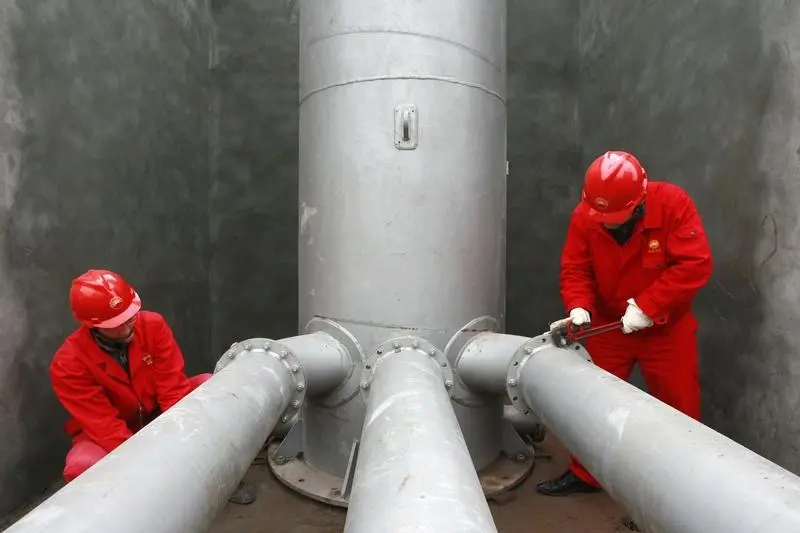PHOTO
HONG KONG - China’s great pipe spin-off will get underway in 2019. After years of planning, Beijing will push behemoths like $200 billion PetroChina to hive off their pipelines. Allowing tens of thousands of kilometres of oil and gas networks to run independently will open them up to smaller competitors. It’s a major step towards energy market reform.
The idea has been some time in the making. Pipeline businesses outside the country are generally separate from the exploration and production units. Large Western players long ago spun off such infrastructure, whether because of campaigns to open up former monopoly industries, or to raise cash: BG, which came out of British Gas, hived off Transco in 2000, and oil majors like Shell have made similar moves too.
In the People’s Republic, however, such splits are easier said than done. State-owned energy giants, especially China National Petroleum Corp-owned PetroChina, are loathe to engage in empire-shrinking. Analyst Neil Beveridge of Bernstein estimates China has around 70,000 kilometres of gas pipelines, of which the giant operates about 70 percent.
But a separation has now become inevitable. For one, Beijing says it wants to foster more competition. A separate – and neutral – infrastructure company is critical for smaller firms to get better access, rather than negotiate capacity with heavyweights who are also rivals. The industry also needs to invest significantly to expand a network that is still a fraction of the United States’, as the economy switches away from coal. A new pipeline company could turn to equity markets to raise cash for that.
Moreover, there is now precedent. Beijing hived off the tower units of China’s big three mobile carriers in 2015. The resulting company, China Tower, raised almost $7 billion with a Hong Kong initial public offering in July. The listing later flattered the bottom lines of the big carriers in their earnings reports.
Much of the detail won’t be clear for a while, not least how the new entity is structured. But it will be substantial: Bernstein estimates that PetroChina’s pipeline segment alone is worth 619 billion yuan ($90 billion). That’s an idea for investors to drill into.
CONTEXT NEWS
- China’s oil majors enjoyed the benefit of higher oil prices in 2018. The largest, PetroChina, said on Oct. 30 that net profit for the third quarter rose 350 percent compared to the same period a year earlier. Sinopec, meanwhile, notched up a 60 percent earnings increase for the same quarter.
(Editing by Clara Ferreira Marques and Katrina Hamlin)
© Reuters News 2018





















